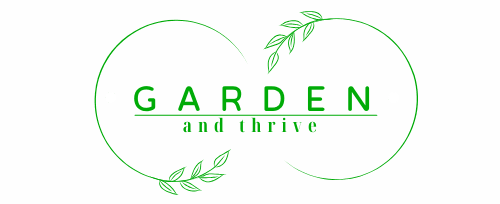How to turn everyday waste into nutrient-rich treasure for your plants—no compost bin required!
If you’ve ever tossed vegetable peels, coffee grounds, or eggshells in the trash and wondered if there was a better way, the answer is yes—and you don’t even need a compost pile to do it. Whether you’re tight on space, living in an apartment, or just not ready to dive into full-on composting, you can still recycle your kitchen scraps directly into your garden.
This guide will walk you through:
- Why kitchen scraps are valuable for your soil
- What to use (and what not to)
- Methods to apply scraps in the garden
- Nutrient highlights for common scraps
- Precautions and pro tips
🌿 Why Kitchen Scraps Are Gold for the Garden
Kitchen scraps are packed with nutrients that your plants love. When used correctly, they:
- Enrich the soil with nitrogen, potassium, calcium, and other minerals
- Improve soil texture and moisture retention
- Feed soil microbes and worms
- Reduce landfill waste and methane emissions
And best of all? It’s free, sustainable, and low-effort.
🥣 What Kitchen Scraps Can Be Used Without Composting?
Here are the MVPs of the kitchen-to-garden game, along with their benefits:
| Scraps | Nutrients | Use For |
|---|---|---|
| 🍌 Banana peels | Potassium, phosphorus, calcium | Flowering & fruiting plants |
| 🥚 Crushed eggshells | Calcium | Tomatoes, peppers, eggplants |
| ☕ Coffee grounds | Nitrogen, organic matter | Leafy greens, acid-loving plants |
| 🍵 Tea leaves/bags (natural only) | Tannins, nitrogen | Soil amendment, mulch |
| 🥕 Veggie peels (carrot, potato, beet, etc.) | Balanced nutrients | General soil enrichment |
| 🥬 Lettuce/spinach scraps | Nitrogen | Compost alternative, soil cover |
| 🍎 Apple cores/fruit scraps | Mild sugars & micronutrients | Feed soil microbes (bury well) |
| 🍚 Cooked rice/oats (unseasoned) | Energy source for microbes | Soil bacteria booster (use sparingly) |
🚫 What Not to Use (Without Composting)
Some items should be avoided unless you’re properly composting or vermicomposting:
- Meat, bones, or dairy: Attract pests and create odors
- Oily or greasy foods: Don’t break down well and disrupt soil balance
- Citrus peels in large amounts: Can acidify soil and harm worms
- Bread: Can mold and attract rodents
- Anything with seasoning/salt
Stick to simple, plant-based scraps when going straight to the garden.
🌱 Methods for Using Kitchen Scraps Without Composting
1. Trench Composting (Direct Burying)
Simple and effective:
- Dig a trench 6–8 inches deep between plants or in a future planting bed
- Drop in your chopped scraps
- Cover with soil
✅ Best for: Any garden bed or empty patch
❌ Avoid near plant roots to prevent rot
Pro Tip: Rotate your trench spots each week to spread nutrients evenly.
2. Blender Slurry (Scrap Smoothies!)
Got a blender you don’t mind getting a little dirty?
- Blend kitchen scraps with water into a thin slurry
- Pour directly into soil around plants or in small dug holes
- Cover with soil or mulch
✅ Best for: Small gardens, potted plants, raised beds
❌ Don’t overdo it—too much can overwhelm roots
Pro Tip: Add a handful of garden soil to the blend to introduce microbes that speed up decomposition.
3. Scrap Mulch
Lay your drier kitchen scraps (like tea bags, wilted lettuce, or coffee filters) directly under your mulch layer.
- Add dry leaves or straw on top
- The mulch hides scraps and helps them break down
✅ Best for: Flower beds, perennial gardens
❌ Not ideal in hot weather unless well-covered
4. Feed the Worms (Without a Bin)
Even if you don’t have a worm bin, you can still attract worms naturally:
- Chop banana peels, lettuce, or melon rinds
- Bury shallowly (2–4 inches deep)
- Water lightly
Worms will come to the area and leave behind nutrient-rich castings.
✅ Best for: Garden beds with good soil life
❌ Avoid if you have pest issues
5. Make a Kitchen Scrap Tea
Not just for compost piles—scrap tea is an easy liquid fertilizer!
- Soak veggie peels, coffee grounds, banana peels, etc., in a 5-gallon bucket of water for 3–5 days
- Stir daily
- Strain and dilute 1:4 with water
- Use to water your plants
✅ Best for: Fast nutrient boost
❌ Use within a week to avoid fermentation
🌸 Specific Plants That Love Certain Scraps
- Tomatoes, Peppers, Eggplant: Crushed eggshells, banana peel tea
- Leafy Greens (Lettuce, Kale, Chard): Coffee grounds, veggie peels
- Fruit Trees & Berry Bushes: Banana peel slurry, blended fruit cores
- Roses & Flowers: Tea leaves, banana peels, diluted scrap tea
⚠️ Precautions
- Chop scraps small for faster breakdown
- Bury deep enough to avoid pest attraction
- Use only unseasoned cooked food
- Rotate where you apply scraps so nutrients are evenly spread
- Don’t overload any one area or plant with kitchen waste
✅ Summary: You Don’t Need a Compost Bin to Use Kitchen Scraps
By thinking like a homesteader and using what you’ve got, you can:
- Feed your soil organically
- Reduce food waste
- Support pollinators and microbes
- Save money on fertilizer
Whether you blend it, bury it, or brew it into tea, your kitchen scraps can do so much more than fill the trash. Every apple core or carrot peel is a chance to build better soil—right now, with what you already have.
